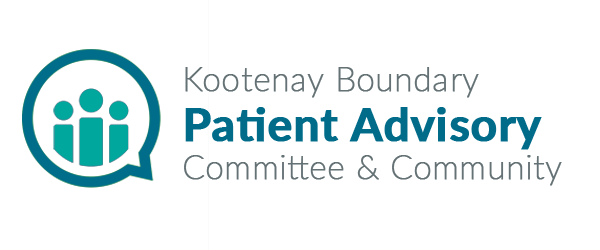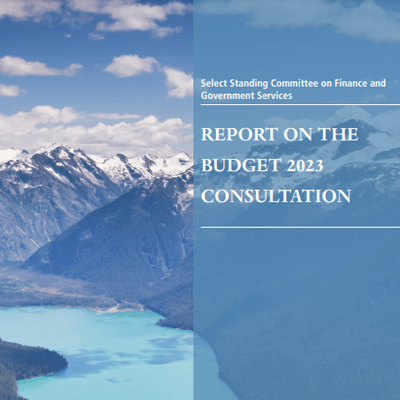PACC took advantage of the opportunity in June 2022 to provide input to the Select Standing Committee on Finance and Government Services during their consultation period for the 2023 Provincial Budget. The Select Standing Committee is one of nine permanent all-party committees of the Legislative Assembly of British Columbia. The committee offers interested parties a chance to provide up to three recommendations for the next provincial budget.
PACC’s three recommendations were to increase patient engagement as a critical aspect of healthcare improvement, to target funding for rural primary care, and to target funding and advocacy for digital healthcare solutions (e.g., expanding use of telemedicine, incorporating patient portals for improved access to health records). In addition to providing background on these critical areas for healthcare delivery and transformation, we offered a number of potential solutions. These included the following:
- Patient Engagement: Target funds to: a) Support the Patient Voices Network and Interior Health’s Patient Engagement in Research (PEiR) to increase staffing, provide education and capacity building for patients and healthcare providers, seek opportunities for public and community engagement, enhance communication about opportunities for patient partners, form collaboratives with other organizations, and support patients through offering options for honoraria for their time which may remove one barrier to diversity of representation; and b) Provide grants directly to organizations like BC Patient Safety and Quality Council, Strategy for Patient-Oriented Research (SPOR), and BC Rural Health Network to support development, recruitment, education, and retention of patient partners.
- Primary Care: Target funds to: a) Increase pipelines – train more family physicians and nurse practitioners, with focused recruitment of students from rural areas; b) Expand primary care teams (e.g., nurses, pharmacists, therapists) and increase team-member scope of practice, with higher reimbursement for their services; c) Increase community-based services through community health centers and walk-in clinics; d) Integrate coordination of services currently provided by other health care professionals (e.g., dentists, pharmacists, chiropractors) and community agencies (e.g., Better at Home, Brain Injury Society, Kootenay Caregivers), and develop new resources that are not currently available locally (e.g., drug and alcohol addiction support systems, supportive living facilities); and e) Support research to study clinic workflow to determine which operational improvements increase the number of patients seen.
- Digital Health Care Solutions: Target funds to: a) Provide grants to clinics to optimize electronic records, and to industry for research and experimental development of digital adoption, b) Facilitate telehealth (including research to identify best practices for its use and virtual clinics for unattached patients), c) Expand Broadband funding programs and public information about them, d) Expand telehealth access to community venues such as libraries, BC Housing complexes, Seniors centers, Shelters, Aboriginal Friendship Centres, Town Halls, and schools so patients can access portals without having to carry hardware and software costs, and e) Advance Ministry of Health progress on integrated systems and patient portals.
Although PACC was not granted an opportunity to present their ideas directly to the committee, some of the above recommendations were highlighted on p. 63 in their report. The full report can be obtained from https://www.leg.bc.ca/content/CommitteeDocuments/42nd-parliament/3rd-session/fgs/budget-consultation/Budget-2023-Consultation-Report.pdf.
Contributor | Article By: Mindy Smith, MD, MS; PACC member


